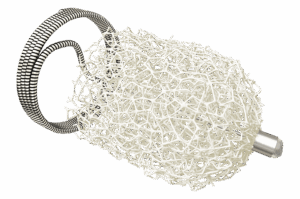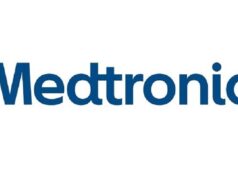
Shape Memory Medical today announced the completion of patient enrolment in the EMBO postmarket surveillance (EMBO-PMS) registry, the company’s prospective, multicentre registry of the Impede and Impede-FX embolisation plugs, and Impede-FX RapidFill device when used for peripheral vascular embolisation.
A press release details that the Impede embolisation plug family of devices utilises Shape Memory Medical’s proprietary shape memory polymer—a porous, radiolucent embolic material that is crimped for catheter delivery and self-expands to its original shape upon exposure to the warm, aqueous environment of a blood vessel. “This expansion creates a conformable, porous scaffold that supports stable thrombus formation and rapid occlusion throughout its structure,” the release reads.
According to Shape Memory Medical, EMBO-PMS represents the first prospective, multicentre study designed to systematically evaluate the real-world application of the novel shape memory polymer devices in peripheral vascular embolisation procedures. The study encompasses a diverse spectrum of arterial and venous applications, including visceral aneurysms, pre-endovascular aneurysm repair (EVAR) branch vessel occlusion, pelvic venous disorders, and vascular anomalies. To date, sustained occlusion has been observed at early follow-up, with no serious adverse events related to the study devices. One-year outcomes are anticipated next year.
“Metallic embolisation coils and plugs have long been effective tools, but their use can be limited by imaging interference and artifact on follow-up CT [computed tomography] scans,” said Robert Morgan (St George’s University Hospitals NHS Foundation Trust and St George’s, University of London, London, UK), principal investigator for EMBO-PMS UK. “The radiolucency of shape memory polymer presents a promising advantage by enhancing visualisation of surrounding anatomy during the procedure and improving clarity in follow-up imaging.”
Götz Martin Richter (Klinikum Stuttgart, Stuttgart, Germany), principal investigator for EMBO-PMS Germany, added: “It’s been highly encouraging to see the broad utility of the Impede devices across multiple endovascular applications. We’re eager to see the one-year follow-up data, which will provide important insight into the durability of the embolotherapy.”
Shape Memory Medical notes that, before the launch of the EMBO-PMS study, the Impede embolisation plug underwent initial evaluation in a first-in-human, prospective, single-arm safety study involving 10 patients who underwent peripheral vascular embolisation, and a retrospective review of long-term follow-up imaging demonstrated no evidence of recanalisation. The company advises that the latest EMBO-PMS results have been accepted for presentation at the Cardiovascular and Interventional Radiological Society of Europe (CIRSE) annual congress 2025 (13–17 September, Barcelona, Spain).










